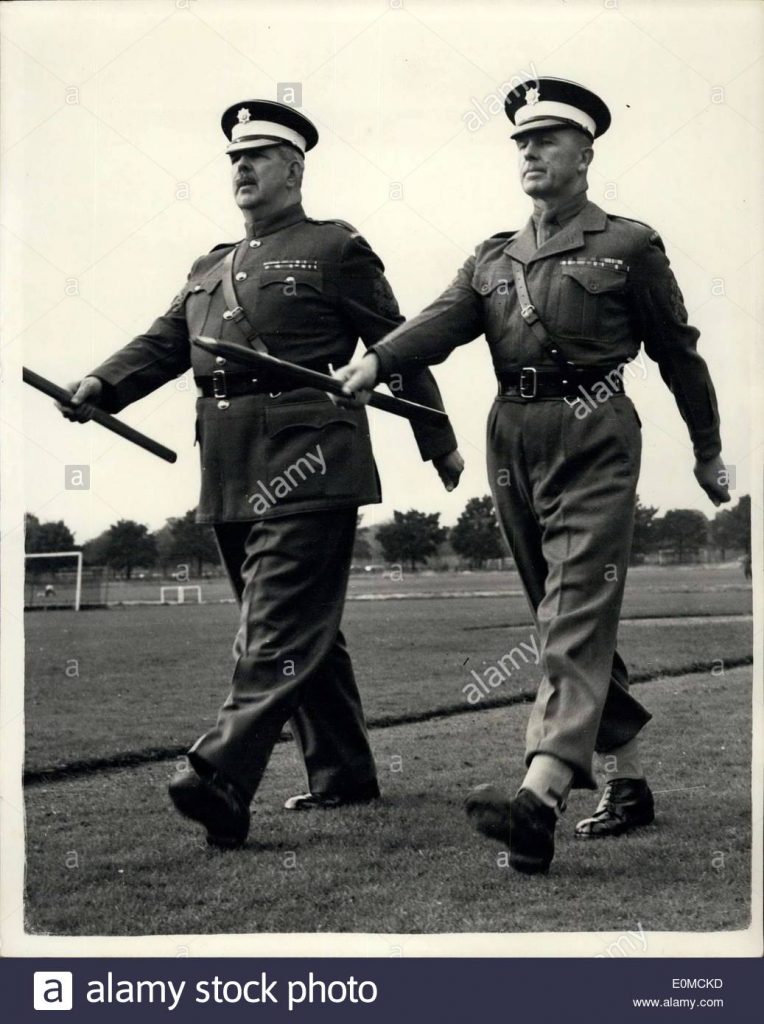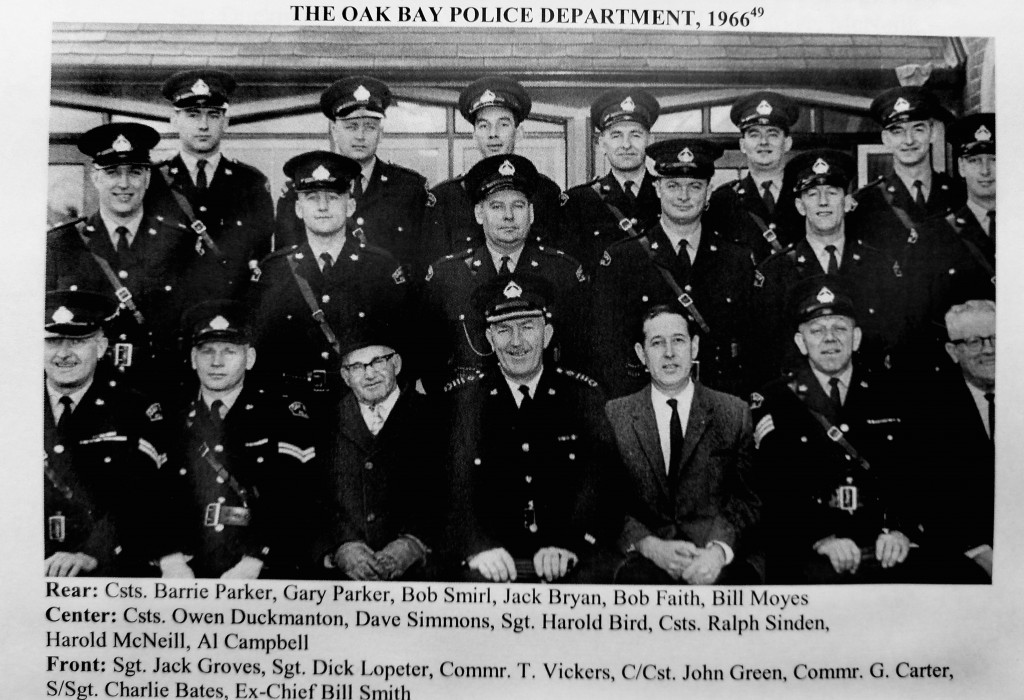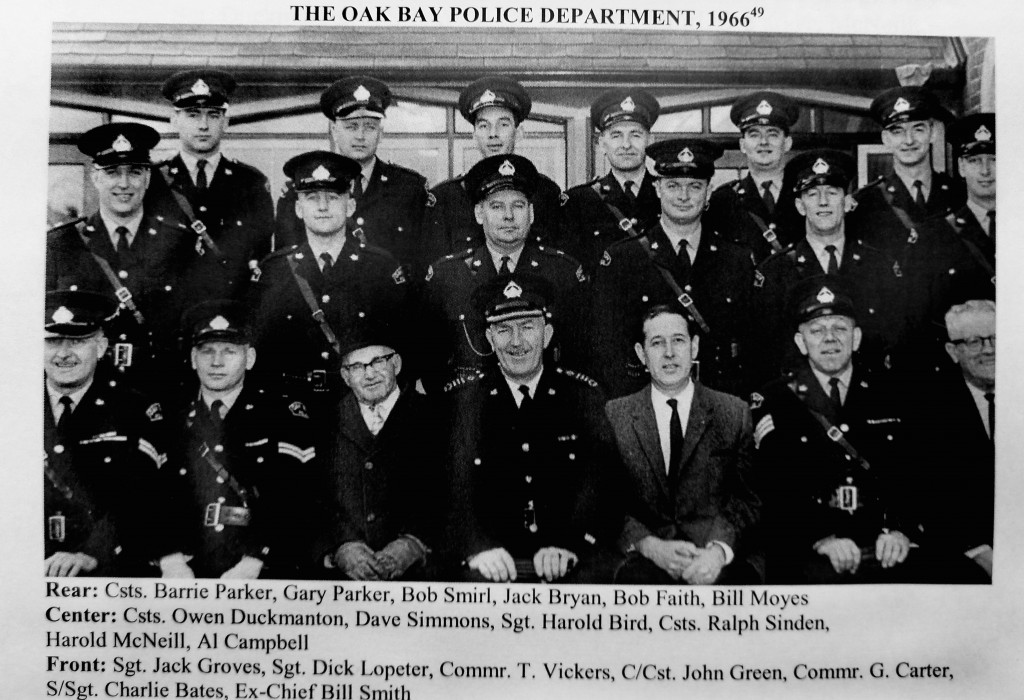Oak Bay Bank Heist
Photo (Author Files): This bank was robbed several times over the years. While all bank robberies have the potential for violence, the robbery in this story had a particularly tragic outcome for an ordinary family.
Bank robbers come in all shapes and sizes
as well as from varied backgrounds
The recent story of the young Calgary woman, a University Student Union President, made National headlines that thrust her into a certain kind of notoriety. Living a secret life, she is alleged to have committed several frauds as well as at least one bank robbery, the one for which she was recently arrested.
While the Oak Bay case is not a carbon copy it follows a similar circumstance, but is one in which the ending was far more tragic. Again, Detective Sergeant Al Campbell, was the lead investigator, the same Detective Sergeant who arrested one of the FBI’s Most Wanted – a multi-millionaire drug trafficker from Indiana who had been tracked down in south Oak Bay. (Link Here)
At one time during the 1970s and early 1980s, Oak Bay might easily have been tagged with the dubious distinction of being the Bank Robbery capital of the British Columbia, if not all of Canada. With a population of barely 15,000, there were several banks along Oak Bay Avenue and a lone bank on Estevan Avenue, banks that acted like catnip to robbers. Each bank was hit at least once and a few, more than once. For staid old Oak Bay, it was big news as bank robberies were still considered to be the most flamboyant and, at times, the most glamorous of crimes.
(5992)
San Remo Restaurant Burglary

The San Remo Restaurant on Quadra at Hillside, has been a fixture in
Victoria for nearly 30 years. With an array of authentic Greek dishes as well Italian and American favourites, the warm and welcoming atmosphere provided by Dino, his daughter Zoi and the friendly staff makes a visit well worthwhile and repeat visists a must (see photos at end of story).
Quiet Times
It was 2:00 am Monday as I sat in my patrol car at the corner of Foul Bay Road and Fort Street working on a vexing problem. The problem? Trying to stay awake. As usual at the end of a week-end, not a thing was happening throughout the city and the radio barely crackled. You could fire a rifle down Douglas Street or along Oak Bay Ave and never fear of hitting anyone. It was nice to have an interlude, but the challenge at 2:00 am was keeping the mind occupied and off the thought of sleep.
As I whiled away the time, another car would occasionally book off with a vehicle, but nothing of consequence. I reflected back upon those times when my friends Blake Green, a Victoria Police member, and his wife Joanne, lived just a few door’s from where I was parked. The coffee pot was always on and the door open, but not a 2:00 am. The Green’s had moved in a few years back and the street, Goldsmith, was now long gone as the houses were torn down to make way for a Seniors Housing Complex and the Oak Bay Recreation Centre.
(2661)
Police Pursuit
Post Updated, March 12, 2017
(Note: If you go to one of the links, please do an arrow return to the main story, as the post links feature is not creating a new tab)
While there are many factors that contribute to the decision of an officer to either continue or call off a pursuit, the accident in the above photo, which occurred on January 18, 2014, (Times Colonist News Report) might have been avoided had a police pursuit earlier in the day not been called off. The danger, of course, had the earlier pursuit continued, an equally tragic accident may have occurred. The police were caught in that “damned if you do, damned if you damned if you don’t” dilemma.
For a police officer in pursuit, the adrenaline rush is significant. If the pursuit ends in the arrest of a suspect, that person is well advised to mind their “p’s and q’s”. If they don’t, they could easily end up on the short end of a nightstick. It’s easy, in retrospect to criticize the police. however, the situation is more complicated. This aspect of police pursuit is discussed more fully in the reference paper noted at the end of this story.
This post was originally made a few years back and is being updated here.
Police Pursuit: Public Debate and
Department Policy
Introduction
The following short stories outline various cases of police pursuit, some humorous, but most having the potential to end in tragedy either during the chase or following the chase having been called off.
In cases that end in tragedy, with the driver or passenger of the pursued vehicle, a policeman or in the worst case, an innocent third party, being injured or killed, the media devolve into a feeding frenzy. From the police perspective, it is a tough call as there is seldom less than a few seconds to make a decision – to pursue or not to pursue. If the decision is to pursue, at what point should it be called off as being to dangerous?
Time of day, the amount of traffic, speeds involved, prior knowledge of the vehicle pursued as stolen or involved in a violent crime, and dozens of other factors all come immediately into play. Over the course of my career I was involved in several dozen high-speed pursuits the majority of which resulted in the arrest of the driver, but on occasion, when it became too dangerous to continue, the pursuit was terminated. On a few occasions, accidents resulted when either the suspect vehicle or my police car became involved in an accident.
(1599)
Oak Bay High School Confidential
The Case of the $20,000 Teddy Bear
This Teddy Sold for £130,190 on 14th October 2000, even though it was slightly smaller than the $20,000 Teddy that was part of an Oak Bay Heist.
Prologue
As affluence tends to define Oak Bay, at least in the eyes of outsiders, there is no better place to continue this series, than with a case about money, a lot of money, well, a lot of money for several dozen Oak Bay High School students.
Who would expect, that over a few days, early one spring, we would learn of parties at which $100 bills were being used to light cigars, stores where students were paying $500 for sport cards, and, of parents being given $100 bills by their kids, all with few questions being asked. Sound a bit far-fetched? Perhaps, but remember, this was Oak Bay and in Oak Bay, anything could happen.
The case developed, first by the keen observation of a fellow officer, and then, by information which pointed to three groups of students, who, in this story, we call the Uplands, Panhandle, and Rockland Boys. The Robin Hoodesque generosity of the three groups played a key roll in the distribution of tens of thousands of dollars throughout the school. What was going on? Had they opened up a counterfeiting ring in the school shop or had they found a bank vault left open along Oak Bay Ave? Not even close. The truth is even more interesting than fiction.
(1021)
Tickets, Tickets, Tickets 4/4

(Stock Photo) Many RSM’s marched out of the military and into the police service in the decades following World War II and the Korean War.
Go to Different Strokes for Part 1
How might you handle a bully, especially a bully with gold braid surrounding his epaulets? Well, you could challenge him directly, but there were inherent dangers with using that approach. Perhaps it would be wise to take a more circuitous route. The challenge I made in this story would only be the first of many times I stepped over the line when feeling chaffed by the actions of a senior officer. Over my thirty years of service, I managed to turn the art of challenge into a science, but there was a cost.
As mentioned in the previous story, our Chief Constable back in the late 1960s, was a notoriously dictatorial fellow. At 6’4 inches, 260 pounds, in excellent shape and with a deep baritone voice, he was a formidable sight, especially to a lowly, Junior Constable.
That he brought to the Police Department his full military bearing as an ex-Regimental Sergeant Major (minus the swagger stick), left him a bit out of touch with the rapidly changing world of policing. Given his personality, one only challenged the Chief’s authority at their peril.
(472)
Please Send a Car 3/4
S/Sgt (later Inspector) Charlie Bates (front row, second from right)
(Served with the Oak Bay Police, 1946 – 1976)
Go to Different Strokes for Part 1
Part 4 Link to Tickets, Tickets, Tickets
Once again, better judgment failed to penetrate my clouded brain as I picked up the phone and called a taxi. While it seemed funny at the moment, after hanging up the phone, I wondered whether the Inspector would appreciate the little joke.
Throughout these stories, I will intersperse a number of anecdotes such as this. Each has more to do with explaining the camaraderie that exists within a small department that might not be tollerated in a larger organization. Yet, in every department, whether large or small, men and women must learn to work closely in order the gain the trust needed to accomplish the job in an effective manner. At times this involved black humour that outsiders might find offensive, at other times practical jokes carried the day (or night) and very often, spending time together in social situations where families came to understand the broad support system that existed within and across police forces in the CRD1.
With a few exceptions, senior ranks were not immune to being the brunt of a practical joke and in this case it involved the 2 I/C of our Department, Inspector Charlie Bates.2 Charlie was one of the most knowledgeable, honest and straightforward men of senior rank I had the pleasure to work with over my early career. He certainly provided much needed balance to the dictatorial, ex-Regimental Sergeant Major who was then our Chief Constable. Inspector Bates, however, subscribed to the old school motto: “rank hath its privilege”.
(418)
Attitude, Attitude, Attitude 2/4
Domestic Disputes: These disputes can be among the most difficult and dangerous calls to attend.
Note: This is Part 2 of the series. Go to Different Strokes for Part 1
Introduction
The Saanich PD Constable stood in the living room of a Cadboro Bay residence facing down two angry people. It was evident by his words and actions that this meeting was not likely to have a happy ending. Meanwhile, his Sergeant was sitting, watching and waiting as chaos slowly enveloped the scene.
There was obviously more to the Sergeant’s inaction than I could at first discern. As I had just arrived on the scene as a back-up, it would take a few minutes to understand why the Sergeant was waiting and watching. We struck up a conversation and both watched through the picture window facing the street.
The reason I was here, is that with three borders (Oak Bay, Saanich, and Victoria) we always covered for each other on such calls as we all knew officers could end up at the scene alone. As our radio systems were on the same channel, we always knew what was going on in each others territory.
The Call
When I arrived, two Saanich police cars were parked on the street with the Saanich Sergeant quietly sitting in his unit. The engine was off and he was having a cigarette as I walked to the driver’s door. I didn’t even have to ask if they needed help as that was obvious. Through the picture window of a house across the street, we could see the another Saanich officer, (he had arrived before the Sergeant) who was standing in the living room facing down a man and woman who were in the midst of a heated argument.
(2535)
Different Strokes for Different Folks 1/4
Photo: Oak Bay Police, 1966, from the book An Historical Perspective of the Members of the Oak Bay Police Department 1906 – 2006
by Sergeant Dan McLean
The four parts of this section, based on the patrol experience of the author, discuss the effects attitude can have on a police officer. This first part explores some of the generalities as well as a study conducted by Constable Terry Toone (Victoria PD) and myself in 1973 while attending the University of Victoria.
Part 2 looks at the challenges faced by one officer as he attends a family dispute in the Cadboro Bay area of Saanich.
Parts 3 and 4, look at my own shortcomings that, on the one hand, served me well on the street, but on the other, did not please my supervisors. In later stories, you will better understand why my career was better suited to that of a front line investigator rather than a back-office administrator.
Link to Part 2/4 Attitude, Attitude, Attitude
1. Working the Street
More than a few police officers work their entire career and never learn some basic skills that would have made their lives so much easier. I was one of those officers, but my challenges were oriented more toward the political than the practical. For that reason, I was destined to spend my career on the street rather than as a Senior Administrator.
Years of street experience taught me that using different approaches could work wonders in reaching a positive outcome, something that was known and practiced by a great many police officers I met over my career. For others there was an adage which went something like this: “Ah, John didn’t have 20 years experience, he had one year of experience, twenty times.”
The use of language, including body language, humour, anger, surprise, sarcasm, deference, curiosity, excitement, awe, confusion, sympathy, empathy, etc., when introduced at the right moment, could help to defuse a situation or reach a positive outcome with suspects, witnesses, youngsters, seniors and any number of others. Skilled interrogators become acutely aware of the importance of using a number of different approaches. If one particular approach did not work, another might.
(2747)






